Intr_version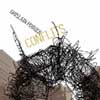
Intr_version continues its winning streak with the fourth release fromunclassifiable French-Canadian maverick Ghislain Poirier, showing himmoving more towards a pure hip-hop sound, while keeping a foot firmlyplaced in the minimal, beautifully melancholic electronica that filledearlier releases like his 12k debut.
Conflicts,however, is more a product of contemporary politics than any logicalprogression for the artist himself. Of the twelve tracks, only threeinclude rapping, but the entire disc bears urgent witness to a seriesof protests, struggles, and reconstructions. Poirier's music has neverbeen texturally complex, working instead through the juxtaposition of afew bold layers to create absorbing, cinematic spaces, but where beforea calm, meditative mood was achieved,
Conflicts is anxious andpensive. On almost every song, thick, unadorned breaks take theforeground, often lacking more than one or two accompanying layers.Poirier's sonic palette has taken a turn towards grittier, more tactilesounds, like groaning feedback and plodding double bass. The hollowresonance of a plucked bass-note could represent the whole of
Conflicts,not thematically vacant, but a record that, on the contrary, suggeststhe bombed-out spaces of the industrial skeleton on its cover. Hooksand melodies emerge in fragmented form and feel barely afloat on thethin strains of stringed instruments and feedback whines that createthe rarely comforting backdrop of most tracks. The album's lyrics areoutwardly political, something obvious to even the non-French speaker,and Poirier's delivery is unique; half spit and half spoken, his wordsare as confrontational as they are musical. The most impressive partsof
Conflicts, though, are the instrumentals covering the disc'ssecond half. Poirier has a thing for off-kilter beats that skip around,hitting and missing, but he uses them in a way that is never overkill,managing to keep focus on the physicality of the beat itself withoutslipping into self-parody. He also loves to send rhythms, and entiresongs, sliding arbitrarily into silence, only to bring them staggeringback out for a big finish, a habit made possible by the rich and oftenformless nature of his backgrounds. From a few layers of droningfeedback, Poirier is able to construct an elaborate cradle for therhythms that front each piece, creating music that sounds at times likethe high frequency squeal of Nurse with Wound's
Soliloquy for Lilith,put to a skipping backbeat. If Steven Stapleton is really consideringhip-hop for his new direction as he claims to be, he might do worsethan check in on Poirier for some inspiration.
samples:
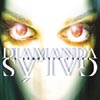 I couldn't imagine a more welcome gift this winter holiday season than two brand-new double albums from Diamanda Galàs. La Serpenta Canta is a live song recital, containing new performances of many favorite songs from her back catalog, her set drawing freely from blues, country, and Motown soul. The idea of a singer as possessed and theatrical as Diamanda Galàs covering American popular song may seem a novelty on the surface, but La Serpenta Canta has quickly become my favorite album by the Greek-American diva.
I couldn't imagine a more welcome gift this winter holiday season than two brand-new double albums from Diamanda Galàs. La Serpenta Canta is a live song recital, containing new performances of many favorite songs from her back catalog, her set drawing freely from blues, country, and Motown soul. The idea of a singer as possessed and theatrical as Diamanda Galàs covering American popular song may seem a novelty on the surface, but La Serpenta Canta has quickly become my favorite album by the Greek-American diva.


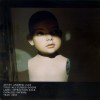 The art of the sound collage and drone music has a group of key members. Mirror, Christoph Heemann, Andrew Chalk, William Basinski, and perhaps just a few more are known and loved and create music that invokes images from other worlds; be those images frightening, sublime, or esoteric, it is impossible to deny their visceral impact. Andrew Liles has been added to that list of elusive and wonderful musicians with this release.
The art of the sound collage and drone music has a group of key members. Mirror, Christoph Heemann, Andrew Chalk, William Basinski, and perhaps just a few more are known and loved and create music that invokes images from other worlds; be those images frightening, sublime, or esoteric, it is impossible to deny their visceral impact. Andrew Liles has been added to that list of elusive and wonderful musicians with this release. 310 are back with a new album for Leaf that sees them taking a turn that may leave fans of their previous work out in the cold. It's always good to see artists making strides and tackling new challenges with their work, even when they are primarily working from a relatively accessible base as 310 are. However, 310's new direction seems to be one aimed at a larger audience, and as such suffers from an awkward directness.
310 are back with a new album for Leaf that sees them taking a turn that may leave fans of their previous work out in the cold. It's always good to see artists making strides and tackling new challenges with their work, even when they are primarily working from a relatively accessible base as 310 are. However, 310's new direction seems to be one aimed at a larger audience, and as such suffers from an awkward directness.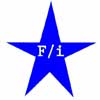 Blue Star/Merge Parlour, the last in Lexicon Devil's series of F/i reissues is less essential than Winter only because it pales in comparison to previously re-released pieces of the F/i catalog, notably the full lengths What Not Now??Alan! and Space Mantra;however, like the Boy Dirt Car reissue, this disc goes beyond anostalgia trip or an attempt to cash in on recent trends. F/i wereentirely unique in their ability to rock as hugely as the greatEuropean psych bands, while sounding at the same time like a very exactproduct of the Midwestern wasteland. All the bombast and ascension intheir often sprawling songs feels tempered by layers of gloom andsuburban malaise; any futurism comes with an equivalent expression ofdisdain for an automated, static culture. The F/i sound could bedescribed as industrial psychedelic, with most songs taking off onrepetitive, kraut-influenced grooves and then treated to a healthyglossing of dirty space-age electronics. A clear touchstone would beearly Chrome, but F/i is less claustrophobic, more prone to slip intothe trance-inducing drone epics than barbed sci-fi theatrics. Theirapproach can feel tired at times, and is certainly more successful onthe aforementioned albums, but this disc includes some of the band'sgreat moments too, like the hard, swinging psych of "Blue Star,"sounding like Guru Guru blasted through a silo, or "Om Twenty-One,"where guitars fizzle and bend around grossly modulated synth tones likea punker's homemade homage to Ligeti's 2001 score. Merge Parlour,F/i's three-song side from a split with Vocokesh, shows the band movingin an increasingly electronic direction. "Pleasure Centres/The Beach,"the standout track from the split, and the best song here, is one ofthe most intense and abstract F/i songs ever, with steady torrents offeedback and distorted samples forming the backdrop for more of thefamiliar guitar squeal, waves of industrial percussion, and droningsynths. That the band's original lineup dissolved quickly after Merge Parlourproves they must have had excuses other than a stagnancy in the music.Lexicon Devil has done a nice job with these reissues, sticking to theoriginal material and liner notes without weighting them down withextraneous crap (my guess is there was more than enough). If anyone isto be canonized, it will happen, as it should, by merit of the musicalone.
Blue Star/Merge Parlour, the last in Lexicon Devil's series of F/i reissues is less essential than Winter only because it pales in comparison to previously re-released pieces of the F/i catalog, notably the full lengths What Not Now??Alan! and Space Mantra;however, like the Boy Dirt Car reissue, this disc goes beyond anostalgia trip or an attempt to cash in on recent trends. F/i wereentirely unique in their ability to rock as hugely as the greatEuropean psych bands, while sounding at the same time like a very exactproduct of the Midwestern wasteland. All the bombast and ascension intheir often sprawling songs feels tempered by layers of gloom andsuburban malaise; any futurism comes with an equivalent expression ofdisdain for an automated, static culture. The F/i sound could bedescribed as industrial psychedelic, with most songs taking off onrepetitive, kraut-influenced grooves and then treated to a healthyglossing of dirty space-age electronics. A clear touchstone would beearly Chrome, but F/i is less claustrophobic, more prone to slip intothe trance-inducing drone epics than barbed sci-fi theatrics. Theirapproach can feel tired at times, and is certainly more successful onthe aforementioned albums, but this disc includes some of the band'sgreat moments too, like the hard, swinging psych of "Blue Star,"sounding like Guru Guru blasted through a silo, or "Om Twenty-One,"where guitars fizzle and bend around grossly modulated synth tones likea punker's homemade homage to Ligeti's 2001 score. Merge Parlour,F/i's three-song side from a split with Vocokesh, shows the band movingin an increasingly electronic direction. "Pleasure Centres/The Beach,"the standout track from the split, and the best song here, is one ofthe most intense and abstract F/i songs ever, with steady torrents offeedback and distorted samples forming the backdrop for more of thefamiliar guitar squeal, waves of industrial percussion, and droningsynths. That the band's original lineup dissolved quickly after Merge Parlourproves they must have had excuses other than a stagnancy in the music.Lexicon Devil has done a nice job with these reissues, sticking to theoriginal material and liner notes without weighting them down withextraneous crap (my guess is there was more than enough). If anyone isto be canonized, it will happen, as it should, by merit of the musicalone. If you've never heard of Milton Mapes, it's no big surprise. Just don't show up to their live gigs expecting to find Milton: the band takes their name from lead singer/songwriter Greg Vanderpool's grandfather. Their songs are straight from the dustbowl heartache fused with a country-rock sensibility that any bartender in a small town saloon would be glad to have playing on the jukebox.
If you've never heard of Milton Mapes, it's no big surprise. Just don't show up to their live gigs expecting to find Milton: the band takes their name from lead singer/songwriter Greg Vanderpool's grandfather. Their songs are straight from the dustbowl heartache fused with a country-rock sensibility that any bartender in a small town saloon would be glad to have playing on the jukebox. This is a weird and psychadelic EP from Ian Masters (Pale Saints) andMark Tranmer (Gnac) that fits almost nowhere in my record collectionbut is still somehow intriguing. Wingdisk combine simple drum machinepatterns with hanging, wistful synth chords to create obvious, almostnaive arrangements for Masters to sing over. Everything sounds veryhome-recorded and it joyfully spits in the face of the trendy laptopproduction that almost anyone else would have put these songs through.The songs are all stitched together with location recordings of publicplaces in Japan which to Western ears makes them all sound a little oddand out of place. I imagine the duo couped up in a Tokyo hotel Lost In Translation-styleand recording a handful of simple jams that were later sequenced intothis EP. I'm sure it didn't go down that way, but that's what isinteresting about this release. For all of its composers previousexperience with making bigger records, this seems like a deliberatelyleft-field, tiny record meant to be enjoyed by only the smallest circleof friends. It shares a reluctance to be categorized with later HisName Is Alive material and at times sounds like the work of a couple ofhigh-school friends trying their hand with a four-track tape recorder.For that mystery alone, it's worth a listen.
This is a weird and psychadelic EP from Ian Masters (Pale Saints) andMark Tranmer (Gnac) that fits almost nowhere in my record collectionbut is still somehow intriguing. Wingdisk combine simple drum machinepatterns with hanging, wistful synth chords to create obvious, almostnaive arrangements for Masters to sing over. Everything sounds veryhome-recorded and it joyfully spits in the face of the trendy laptopproduction that almost anyone else would have put these songs through.The songs are all stitched together with location recordings of publicplaces in Japan which to Western ears makes them all sound a little oddand out of place. I imagine the duo couped up in a Tokyo hotel Lost In Translation-styleand recording a handful of simple jams that were later sequenced intothis EP. I'm sure it didn't go down that way, but that's what isinteresting about this release. For all of its composers previousexperience with making bigger records, this seems like a deliberatelyleft-field, tiny record meant to be enjoyed by only the smallest circleof friends. It shares a reluctance to be categorized with later HisName Is Alive material and at times sounds like the work of a couple ofhigh-school friends trying their hand with a four-track tape recorder.For that mystery alone, it's worth a listen. The NYer privilege of being able to see a zillion interesting shows onany given night has always made me jealous, but rarely so much as itdid when Painkiller was resurrected for a couple of nights with HamidDrake on drums earlier this year. Thankfully, the Japanese havereleased the next best thing on this pair of CDs: an hour and a half ofPainkiller's fatter, funkier brother, the terribly-named Buck JamTonic. The two discs make a neat set: the first was mixed by drummerTatsuya Nakamura, while the second features three Bill Laswellinterpretations of the same sessions. An obvious result is that there'ssome overlap of source material between the discs (see the samples of"Nu," from the Tokyo mix, and "Tzu," from the New York mix), but whereNakamura's tracks are rough-sounding little nuggets of rock, Laswell'sare denser epics that build and ebb dramatically (across a widerspectral range, too) over the course of 20 or 30 minutes. Furtheringthe variety, John Zorn actually played alto and soprano sax that day instead of just honking, and Laswell pulled out some monstrous "boWAAAAAAAOW" noises to really get the blood flowing; the effect is a lot like the ugly muscle of Execution Ground, only with way peppier drumming. Hearing it through two different sets of ears gives BJTsome replay value beyond its fist-pumping qualities, too, so it's morethan just a replacement for a concert experience. Get past the awfulname and hideous cover, and there's plenty to enjoy.
The NYer privilege of being able to see a zillion interesting shows onany given night has always made me jealous, but rarely so much as itdid when Painkiller was resurrected for a couple of nights with HamidDrake on drums earlier this year. Thankfully, the Japanese havereleased the next best thing on this pair of CDs: an hour and a half ofPainkiller's fatter, funkier brother, the terribly-named Buck JamTonic. The two discs make a neat set: the first was mixed by drummerTatsuya Nakamura, while the second features three Bill Laswellinterpretations of the same sessions. An obvious result is that there'ssome overlap of source material between the discs (see the samples of"Nu," from the Tokyo mix, and "Tzu," from the New York mix), but whereNakamura's tracks are rough-sounding little nuggets of rock, Laswell'sare denser epics that build and ebb dramatically (across a widerspectral range, too) over the course of 20 or 30 minutes. Furtheringthe variety, John Zorn actually played alto and soprano sax that day instead of just honking, and Laswell pulled out some monstrous "boWAAAAAAAOW" noises to really get the blood flowing; the effect is a lot like the ugly muscle of Execution Ground, only with way peppier drumming. Hearing it through two different sets of ears gives BJTsome replay value beyond its fist-pumping qualities, too, so it's morethan just a replacement for a concert experience. Get past the awfulname and hideous cover, and there's plenty to enjoy. Intr_version continues its winning streak with the fourth release fromunclassifiable French-Canadian maverick Ghislain Poirier, showing himmoving more towards a pure hip-hop sound, while keeping a foot firmlyplaced in the minimal, beautifully melancholic electronica that filledearlier releases like his 12k debut. Conflicts,however, is more a product of contemporary politics than any logicalprogression for the artist himself. Of the twelve tracks, only threeinclude rapping, but the entire disc bears urgent witness to a seriesof protests, struggles, and reconstructions. Poirier's music has neverbeen texturally complex, working instead through the juxtaposition of afew bold layers to create absorbing, cinematic spaces, but where beforea calm, meditative mood was achieved, Conflicts is anxious andpensive. On almost every song, thick, unadorned breaks take theforeground, often lacking more than one or two accompanying layers.Poirier's sonic palette has taken a turn towards grittier, more tactilesounds, like groaning feedback and plodding double bass. The hollowresonance of a plucked bass-note could represent the whole of Conflicts,not thematically vacant, but a record that, on the contrary, suggeststhe bombed-out spaces of the industrial skeleton on its cover. Hooksand melodies emerge in fragmented form and feel barely afloat on thethin strains of stringed instruments and feedback whines that createthe rarely comforting backdrop of most tracks. The album's lyrics areoutwardly political, something obvious to even the non-French speaker,and Poirier's delivery is unique; half spit and half spoken, his wordsare as confrontational as they are musical. The most impressive partsof Conflicts, though, are the instrumentals covering the disc'ssecond half. Poirier has a thing for off-kilter beats that skip around,hitting and missing, but he uses them in a way that is never overkill,managing to keep focus on the physicality of the beat itself withoutslipping into self-parody. He also loves to send rhythms, and entiresongs, sliding arbitrarily into silence, only to bring them staggeringback out for a big finish, a habit made possible by the rich and oftenformless nature of his backgrounds. From a few layers of droningfeedback, Poirier is able to construct an elaborate cradle for therhythms that front each piece, creating music that sounds at times likethe high frequency squeal of Nurse with Wound's Soliloquy for Lilith,put to a skipping backbeat. If Steven Stapleton is really consideringhip-hop for his new direction as he claims to be, he might do worsethan check in on Poirier for some inspiration.
Intr_version continues its winning streak with the fourth release fromunclassifiable French-Canadian maverick Ghislain Poirier, showing himmoving more towards a pure hip-hop sound, while keeping a foot firmlyplaced in the minimal, beautifully melancholic electronica that filledearlier releases like his 12k debut. Conflicts,however, is more a product of contemporary politics than any logicalprogression for the artist himself. Of the twelve tracks, only threeinclude rapping, but the entire disc bears urgent witness to a seriesof protests, struggles, and reconstructions. Poirier's music has neverbeen texturally complex, working instead through the juxtaposition of afew bold layers to create absorbing, cinematic spaces, but where beforea calm, meditative mood was achieved, Conflicts is anxious andpensive. On almost every song, thick, unadorned breaks take theforeground, often lacking more than one or two accompanying layers.Poirier's sonic palette has taken a turn towards grittier, more tactilesounds, like groaning feedback and plodding double bass. The hollowresonance of a plucked bass-note could represent the whole of Conflicts,not thematically vacant, but a record that, on the contrary, suggeststhe bombed-out spaces of the industrial skeleton on its cover. Hooksand melodies emerge in fragmented form and feel barely afloat on thethin strains of stringed instruments and feedback whines that createthe rarely comforting backdrop of most tracks. The album's lyrics areoutwardly political, something obvious to even the non-French speaker,and Poirier's delivery is unique; half spit and half spoken, his wordsare as confrontational as they are musical. The most impressive partsof Conflicts, though, are the instrumentals covering the disc'ssecond half. Poirier has a thing for off-kilter beats that skip around,hitting and missing, but he uses them in a way that is never overkill,managing to keep focus on the physicality of the beat itself withoutslipping into self-parody. He also loves to send rhythms, and entiresongs, sliding arbitrarily into silence, only to bring them staggeringback out for a big finish, a habit made possible by the rich and oftenformless nature of his backgrounds. From a few layers of droningfeedback, Poirier is able to construct an elaborate cradle for therhythms that front each piece, creating music that sounds at times likethe high frequency squeal of Nurse with Wound's Soliloquy for Lilith,put to a skipping backbeat. If Steven Stapleton is really consideringhip-hop for his new direction as he claims to be, he might do worsethan check in on Poirier for some inspiration.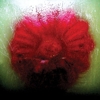 I sometimes like music that floats effortlessly from drone to post-rockknob twiddling to electronic beats of fancy, all over the same album,and still makes it seem normal, like it isn't driven by some mentalillness or other after all. Twelve's First Albumis exactly that kind of record, custom designed to infect the brain andnever let go, and for the most part it accomplishes this noble, perhapsimpossible, goal. In quite possibly the trippiest framework since theself-titled For Carnation album of three years ago, Twelve moveeffortlessly from genre to genre without so much as a breath of freshair. Six.By Seven's Chris Olley is the brainchild of the proceedings,bringing along vocalist Tee Dymond and Six.By's drummer Chris Davis tofill it all out. The album starts with a twenty-four guitar drone trackof stunning but simplistic beauty before settling in to the slow coreepic "Talkin About." Clocking in at over eleven minutes — though itdoesn't ever feel like it — the track starts off quiet enough buteventually soars in two glorious crescendos of guitars and programmedstrings. A lovely, earnest beginning; then, it all just goes awry, butnot in a bad way. "Travelin' Light" is funk bass electronic madnesswith a bit of drone mixed in that sets the album on its ear, and thepolyrhythmic wonder of it all takes over half the record. The slow rockreturns on "Never Let You Go" and "Now," but this record belongs to thegrind and grit of the programmed tracks. It's a complete record,there's nothing missing, and a combination of the styles might havemade it all implode. Flawed though this may seem, it serves the recordperfectly for a solid debut that previous work merely hinted at if atall.
I sometimes like music that floats effortlessly from drone to post-rockknob twiddling to electronic beats of fancy, all over the same album,and still makes it seem normal, like it isn't driven by some mentalillness or other after all. Twelve's First Albumis exactly that kind of record, custom designed to infect the brain andnever let go, and for the most part it accomplishes this noble, perhapsimpossible, goal. In quite possibly the trippiest framework since theself-titled For Carnation album of three years ago, Twelve moveeffortlessly from genre to genre without so much as a breath of freshair. Six.By Seven's Chris Olley is the brainchild of the proceedings,bringing along vocalist Tee Dymond and Six.By's drummer Chris Davis tofill it all out. The album starts with a twenty-four guitar drone trackof stunning but simplistic beauty before settling in to the slow coreepic "Talkin About." Clocking in at over eleven minutes — though itdoesn't ever feel like it — the track starts off quiet enough buteventually soars in two glorious crescendos of guitars and programmedstrings. A lovely, earnest beginning; then, it all just goes awry, butnot in a bad way. "Travelin' Light" is funk bass electronic madnesswith a bit of drone mixed in that sets the album on its ear, and thepolyrhythmic wonder of it all takes over half the record. The slow rockreturns on "Never Let You Go" and "Now," but this record belongs to thegrind and grit of the programmed tracks. It's a complete record,there's nothing missing, and a combination of the styles might havemade it all implode. Flawed though this may seem, it serves the recordperfectly for a solid debut that previous work merely hinted at if atall.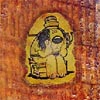 With a name dually inspired by Francois Truffaut's The 400 Blows and a sudden, tragic drop in seratonin levels, 400 Lonely Things is clouded in a nebulous haze of sadness, brought on by doubt, aggravated by melancholy. The beautifully packaged limited edition LP of the debut album offers no information on the instrumentation or personnel involved in its creation. The idea, I suppose, is to isolate the listener in the same way the artist imagines himself isolated.
With a name dually inspired by Francois Truffaut's The 400 Blows and a sudden, tragic drop in seratonin levels, 400 Lonely Things is clouded in a nebulous haze of sadness, brought on by doubt, aggravated by melancholy. The beautifully packaged limited edition LP of the debut album offers no information on the instrumentation or personnel involved in its creation. The idea, I suppose, is to isolate the listener in the same way the artist imagines himself isolated.
